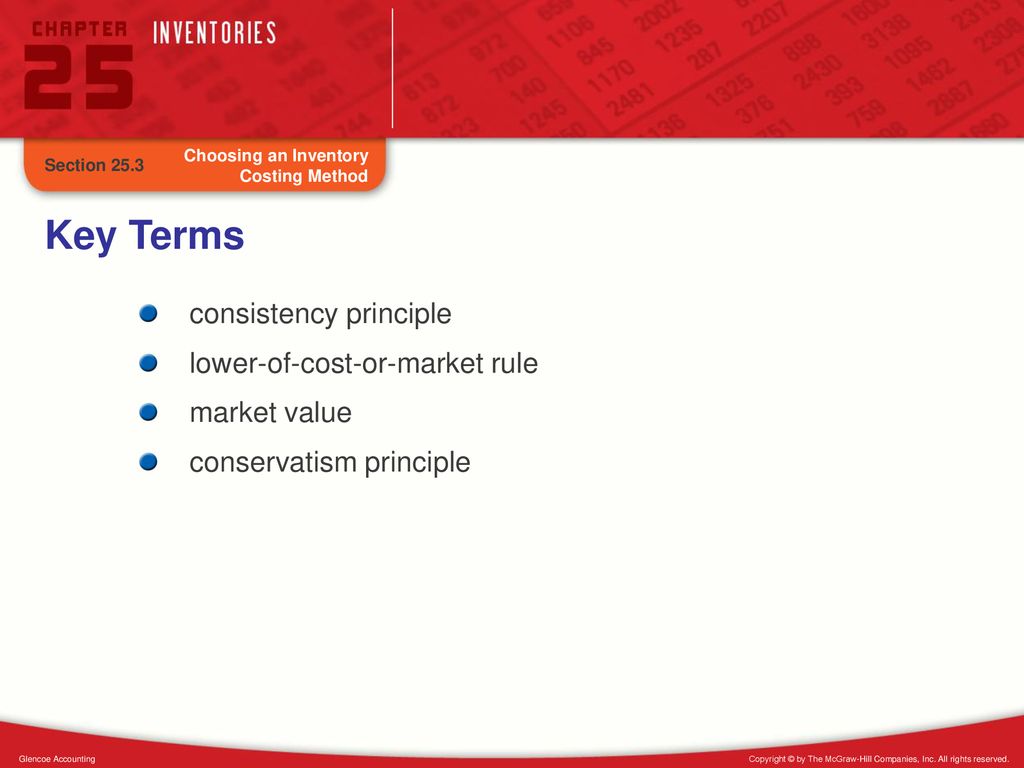
This allows the readers of the financial statements to make meaningful comparisons between years. By requiring entities to use consistent accounting methods and principles over time, the consistency principle helps to ensure that financial statements are useful and relevant to all users. When entities use consistent accounting methods and principles, users can more easily identify trends, changes, and anomalies in an entity’s financial position and performance. The consistency principle states that, once you adopt an accounting principle or method, you should continue to follow it consistently in future accounting periods.
What is the GAAP technique?
It’s a key to ensuring the integrity and comparability of financial statements. The principle is a guiding light for accountants, emphasizing the importance of strict adherence to established accounting rules and regulations. When these gift certificates are sold, Todd sometimes credits a sale and sometimes he credits a gift cards payable account.
Is there any other context you can provide?
It requires that accountants and financial professionals not overestimate revenues or expenses. This principle ensures that financial statements are not misleading due to excessive optimism or speculation. The GAAP technique refers to the methodologies and practices prescribed by Generally Accepted Accounting Principles for recording and reporting financial information.
Principles and concepts of accounting

For information pertaining to the registration status of 11 Financial, please contact the state securities regulators for those states in which 11 Financial maintains a registration filing. Finance Strategists has an advertising relationship with some of the companies included on this website. We may earn a commission when you click on a link or make a purchase through the links on our site. All of our content is based on objective analysis, and the opinions are our own. The FAF is responsible for appointing board members and ensuring that these boards operate fairly and transparently. Members of the public can attend FAF organization meetings in person or through live webcasts.
Ask a Financial Professional Any Question
If the business does not follow the consistency principle, it will not be able to summarize its financial performance consistently. Financial accounts’ summary i.e. the financial statements would represent meaningless data without a useful comparison. Comparing financial data from one accounting period to another where are selling and administrative expenses found on the multi or an industry-standard provides a realistic picture of the entity’s financial performance. Thus, without a consistent approach is accounting principles, the summary of accounts would provide meaningless information. Consistent use of one accounting practice also eliminates irregularities and restricts anomalies.
- The International Financial Reporting Standards (IFRS) is the most widely used set of accounting principles, with adoption in 168 jurisdictions.
- Historical cost is objective because an auditor, or anyone for that matter, could observe the receipt for the asset and come up with the same cost, which is, in fact, one of the tests that auditors perform on major assets.
- The principle mandates the consistent application of accounting methods over time, creating a stable financial analysis and decision-making framework.
Non-GAAP accounting techniques deviate from these standards by definition, leading some professionals and stakeholders to dispute or reject their use. Revenue Recognition Principle – requires companies to record revenue when it is earned instead of when it is collected. This accrual basis of accounting gives a more accurate picture of financial events during the period. By ensuring that the key points of each of these principles and concepts are understood, candidates should be better prepared to answer questions that might arise in the exam. ‘Duality’ refers to the fact that every transaction has a ‘dual aspect’ and therefore requires the use of ‘double entry’ accounting.
Comprehending these principles is vital to guaranteeing openness and uniformity in financial documentation, essential for efficient financial markets and the economy. The annual report, on the other hand, offers a comprehensive overview of the financial year, including detailed discussions on performance, strategy, and future outlook. A typical illustration of this principle is a company publishing its financial statements every quarter (three months) and annually (twelve months). According to the Principle of Non-Compensation, the company must report these figures separately on its balance sheet. The assets of $1 million are reported under the assets section, and the debts of $600,000 are reported under the liabilities section. The cost of the earliest inventory items purchased determines the cost of goods sold in the FIFO inventory valuation method, presuming that the first items purchased are the first to sell.
In other words, companies shouldn’t use one accounting method today, use another tomorrow, and switch back the day after that. Similar transactions should be accounted for using the same accounting method over time. This creates consistency in the financial information given to creditors and investors. Overall, the consistency principle is important in accounting because it promotes accuracy, comparability, transparency, and reliability in financial reporting. In addition to promoting comparability and accuracy in financial reporting, the consistency principle also promotes transparency in accounting.
A financial professional will offer guidance based on the information provided and offer a no-obligation call to better understand your situation. Our writing and editorial staff are a team of experts holding advanced financial designations and have written for most major financial media publications. Our work has been directly cited by organizations including Entrepreneur, Business Insider, Investopedia, Forbes, CNBC, and many others. We follow strict ethical journalism practices, which includes presenting unbiased information and citing reliable, attributed resources. Finance Strategists is a leading financial education organization that connects people with financial professionals, priding itself on providing accurate and reliable financial information to millions of readers each year.